“When I came out as a trans person, I was 32, which, in this day and age, is kind of old. A lot of people are coming out much younger because of how much more accepted it is now.”
“I had been living as a woman, and as a lesbian. But then I went through a very dark period. I realized there was an underlying, weird thing that was going on inside of me that I could never reach. I could be happy but I could never be happy enough. And in one of my therapy sessions, it just clicked. I always remembered, when I was a child, feeling like I was a boy. But I thought I fixed that about myself. When you don’t want to be something so badly, it’s the scariest thing in the world. You push it away without even letting yourself recognize what it is you’re pushing away. When I realized that I was trans, a wave of fear came over me. It was the only therapy session that I’ve ever walked out of.”
I realized, if I don’t do this, I’ll never be truly happy.
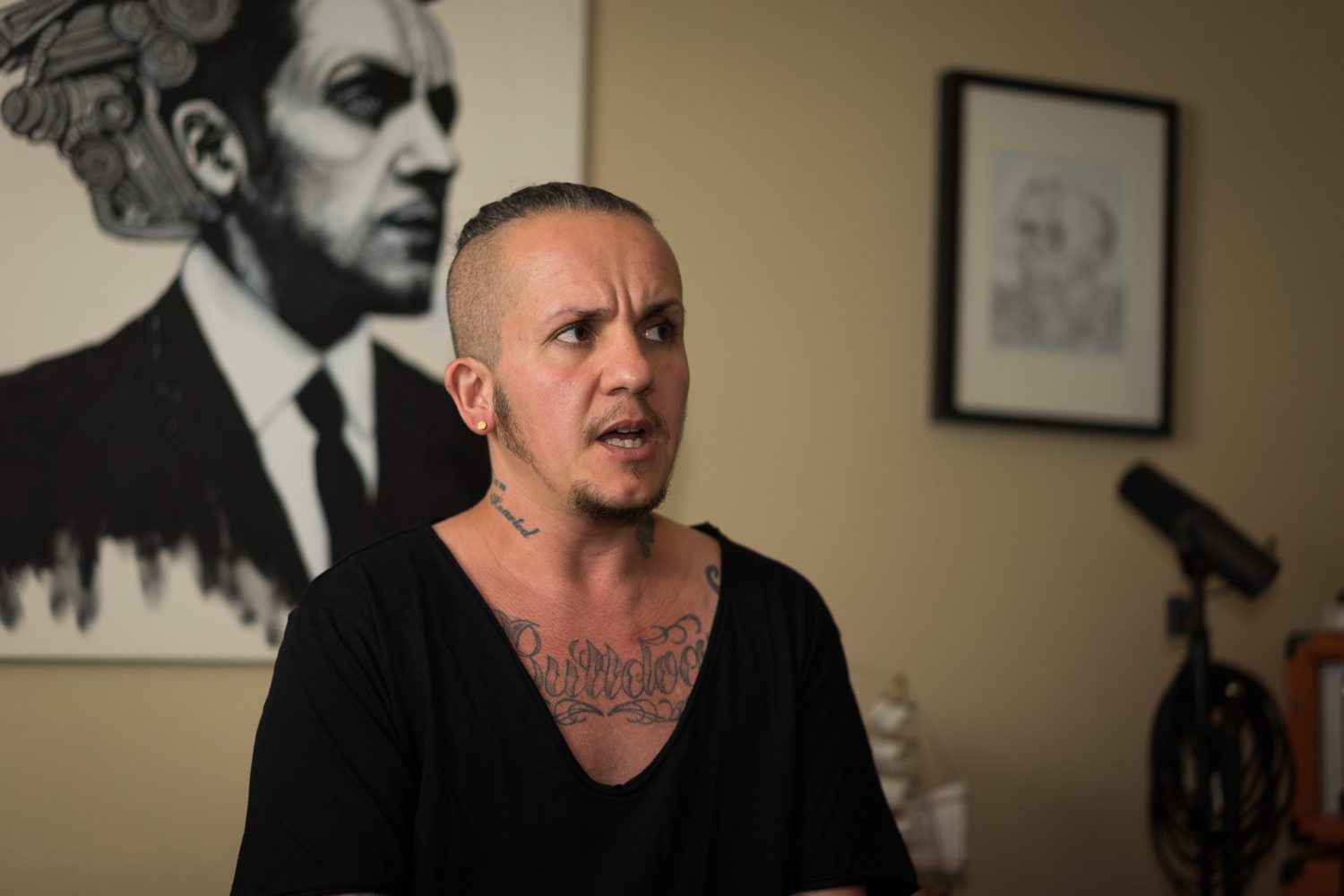
“I walked into the office of my old family doctor and told her that I was trans and that I wanted surgery. She said she would look into it but I could tell she was not very comfortable with it. Within a couple of weeks, she called me at home. ‘I’m really sorry but I just don’t know what to do with you,’ were her words. She recommended a health centre that specializes in trans patients.”
I called my partner at the time and said ‘I think I just got fired from being a patient.’
“It’s like somebody has a specific cancer and the doctor says, ‘I’ve never seen this cancer before, so bye.’ That’s when the person needs you the most! I want to tell health workers, do your research. There are so many resources out there. You are given a challenge and you could become a better doctor and a better person even, if you had decided to treat me like a human being and not someone you don’t have the patience to treat.”
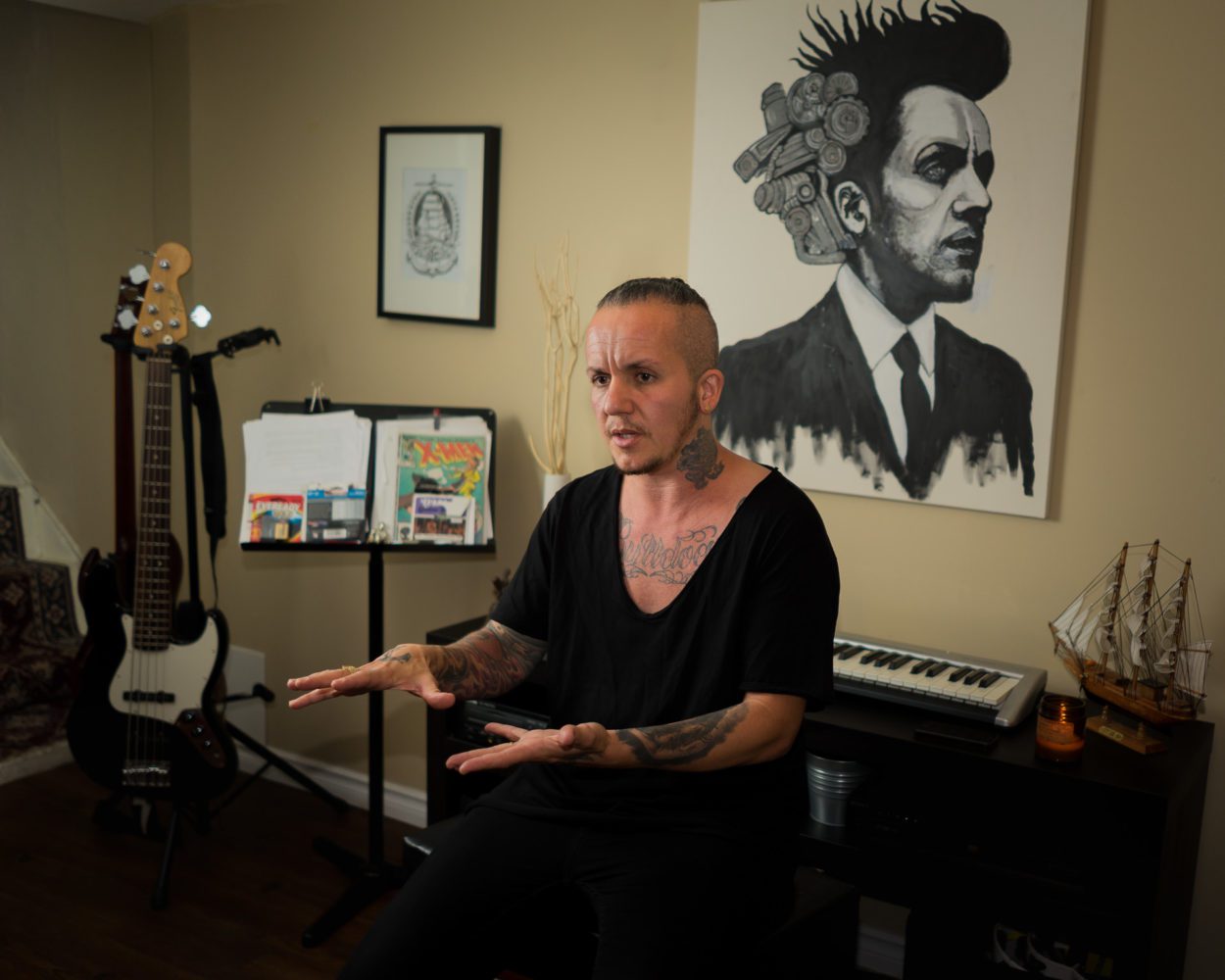
“Around the time I was transitioning, I got a record deal.”
I was told by a friend of mine that going on testosterone was something that I couldn’t do, because I was going to lose my voice and I wouldn’t be able to sing.
“So I got the top surgery – a double mastectomy – and I stayed away from the hormones. But five years later, I heard a trans male singer for the first time and realized it may be possible for me to take hormones and still sing. I went to my doctor at the health centre and asked if she had any information on how taking hormones would affect my voice. She asked if I would be okay with her sharing my question with other doctors at their weekly meeting. I said sure. At the next appointment, she said, ‘Another doctor in the clinic, who is a trans woman, would like to help you, not as your doctor but as your peer. She’s a musician too.'”
“When I met this doctor, she brought a keyboard out and she played notes. She showed me how my voice would change. She explained how my vocal muscles would be affected. That really helped me. I took vocal lessons and I started with a really low dose of hormones that allowed me to adjust to the muscles changing. That meant a lot to me, to be able to be on hormones and not have it hurt my voice.”
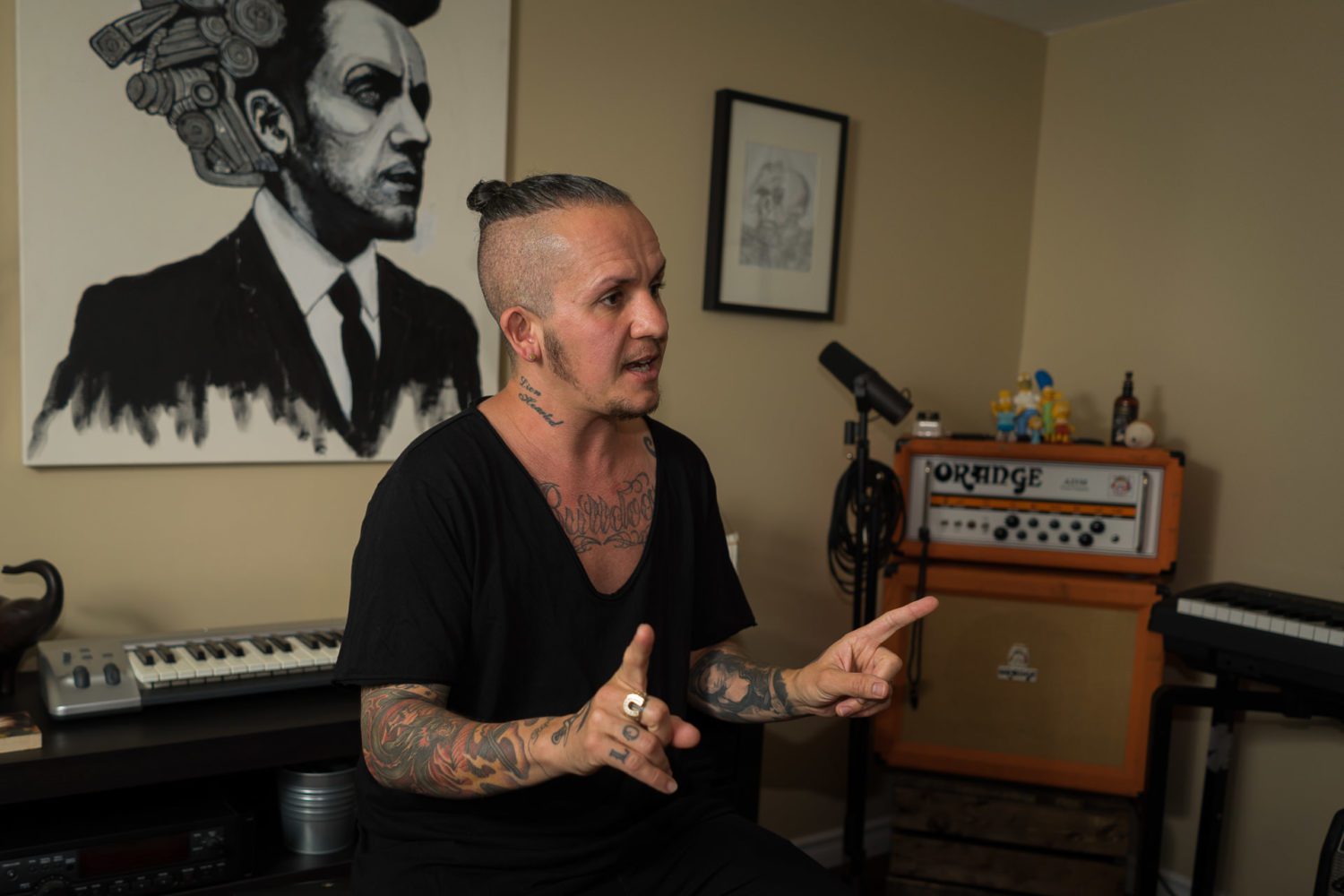
“I had a friend who got into a major mental health hospital that approves trans people for surgeries and hormones. So I asked him ‘What do you have to do in order to qualify for top surgery?’ And he said, ‘They’re having me do the most ridiculous things.’ This was only two years ago. He told me he had to write a paper on what it meant to be a man to him, and also provide photos. He was like, ‘I’m going to play their game and I’m going to write what they want to hear: I used to play with trucks and I didn’t like Barbie dolls.’ I think doctors want people to prove themselves as trans and tell specific stories. Maybe they worry people will regret the decision to transition.”
I have never ever met one human being who regretted transitioning and I know a lot of trans people.
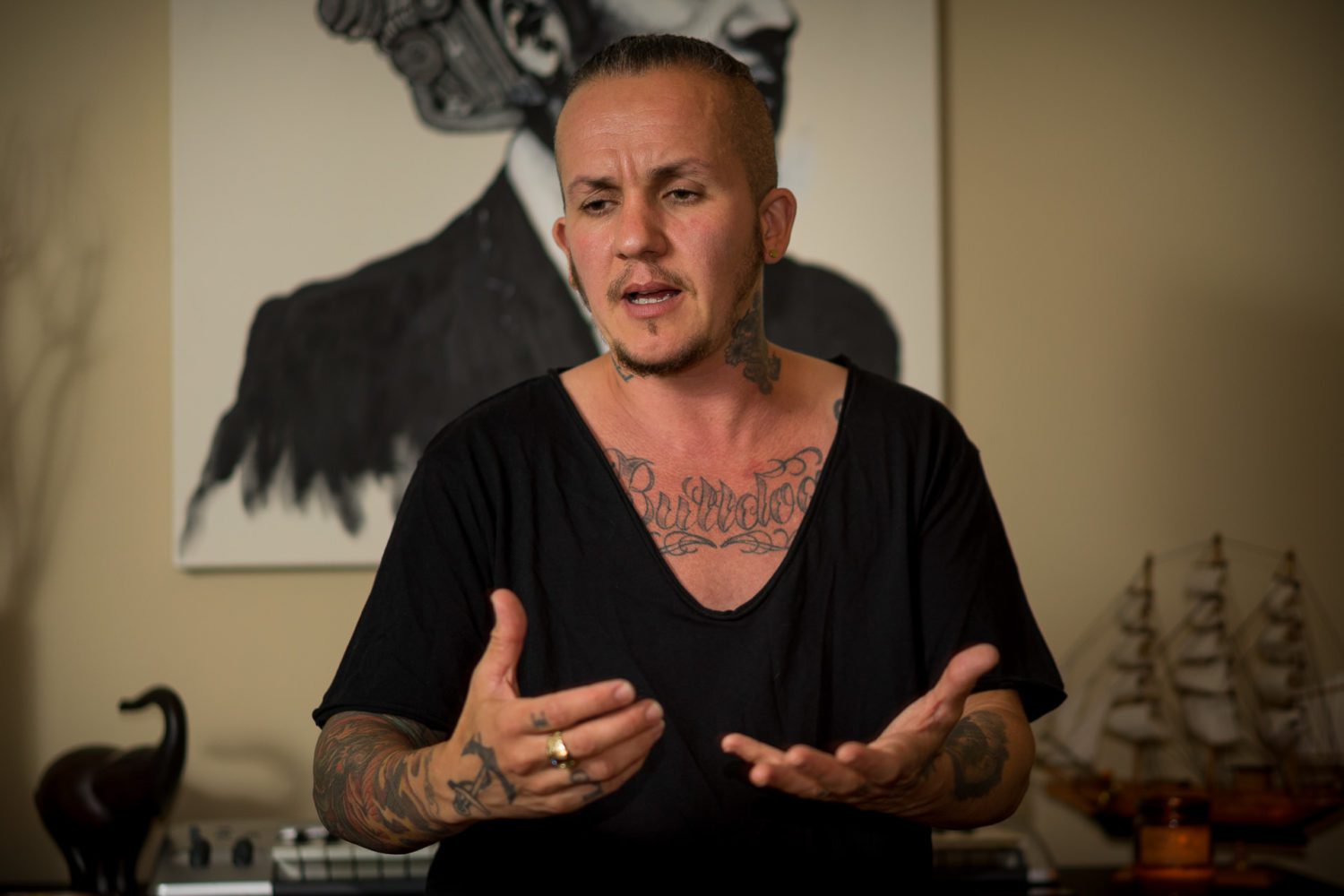
“Before I was on testosterone, there was one time I went for an ultrasound. All my files have my name and state that I’m transgender but the woman at the front desk called me by my old name. I said, ‘Actually, I go by Lucas, I’m transgendered.'”
There’s this weird discomfort you see on people’s faces. They don’t know what to do with themselves. When the health worker is really uncomfortable, it makes you feel really uncomfortable.
“As I was getting dressed, I heard the technician talk to a male doctor about how she couldn’t get a clear result. The doctor said ‘Is the patient a male or female?’ And the technician started stuttering on her words, saying ‘It’s a woman, but she says she’s a man.’ The doctor started laughing, and he said, ‘Well, it’s either a woman or a man, you can’t be both!'”
“I was taken so aback that they were saying these things. I was in the change room like, ‘Hey, I’m right here.’ I typically have a thick skin when it comes to this stuff, but I was very wounded. Especially in a health care situation, you’re already feeling vulnerable. The last thing you want to do is let people touch you or look you up and down when they’re not respecting your body and your gender identity.”
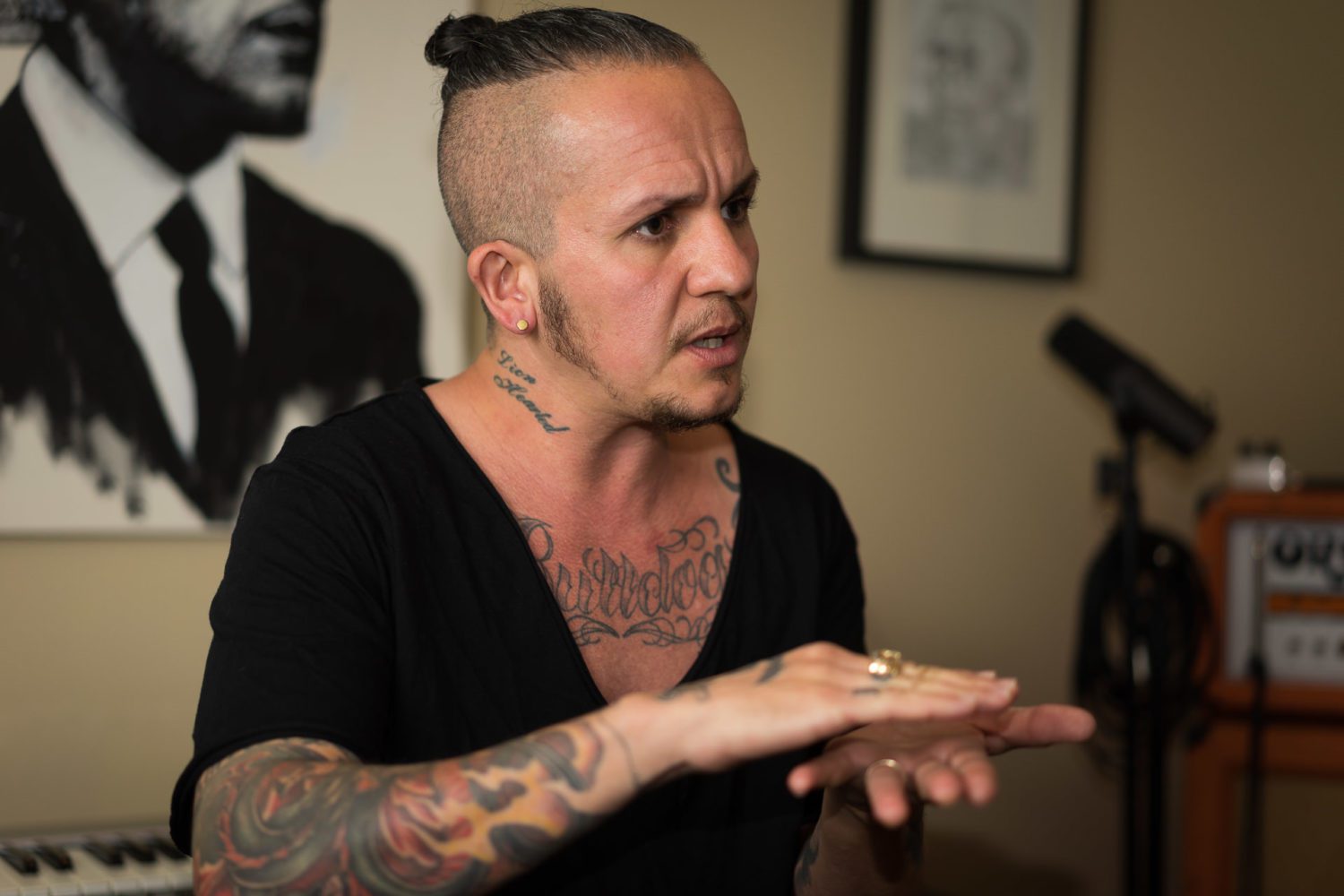
“I’ve also had very good experiences in health care. I recently went in an ambulance, because when I called Telehealth they thought I might be having a stroke, which I wasn’t – thankfully. I just assumed it would come up on my record that I was trans. When I got to the hospital and I was waiting in the emergency department, the paramedic said, ‘Can you come here for a second?’ He took me into this cubicle. There was the emergency department nurse, myself and the paramedic. ‘I’m very sorry but it says here that your name is Lilia,’ the nurse said. I said ‘Oh yeah, I’m trans.’ And she said, ‘Okay, that explains it. Thanks.’ And the paramedic said, ‘Next time, just let me know, because you’re anatomy is important in the case of an emergency.’ He was really nice about it. That was awesome, because I was pulled aside. They were respectful. They weren’t shocked. They were like, ‘Yeah, okay, that’s cool.'”


The comments section is closed.